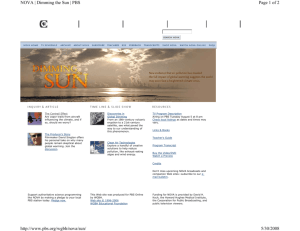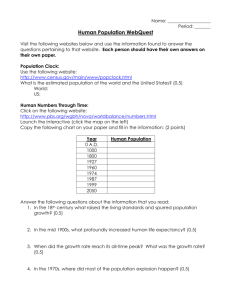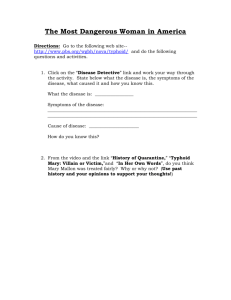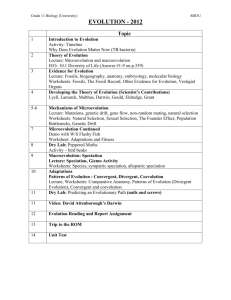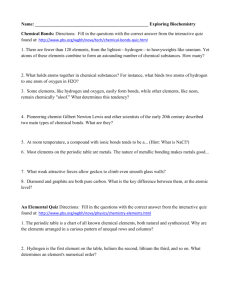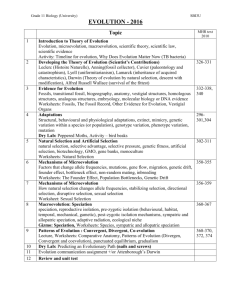NOVA: watch Online
advertisement
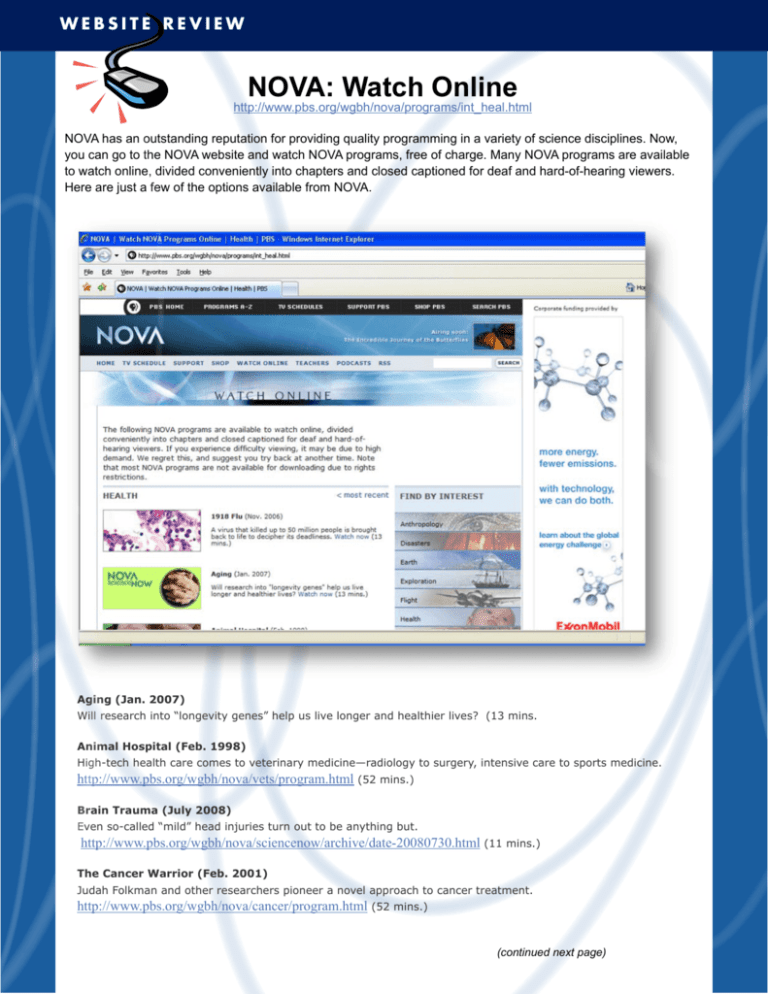
WEBSITE REVIEW NOVA: Watch Online http://www.pbs.org/wgbh/nova/programs/int_heal.html NOVA has an outstanding reputation for providing quality programming in a variety of science disciplines. Now, you can go to the NOVA website and watch NOVA programs, free of charge. Many NOVA programs are available to watch online, divided conveniently into chapters and closed captioned for deaf and hard-of-hearing viewers. Here are just a few of the options available from NOVA. Aging (Jan. 2007) Will research into “longevity genes” help us live longer and healthier lives? (13 mins. Animal Hospital (Feb. 1998) High-tech health care comes to veterinary medicine—radiology to surgery, intensive care to sports medicine. http://www.pbs.org/wgbh/nova/vets/program.html (52 mins.) Brain Trauma (July 2008) Even so-called “mild” head injuries turn out to be anything but. http://www.pbs.org/wgbh/nova/sciencenow/archive/date-20080730.html (11 mins.) The Cancer Warrior (Feb. 2001) Judah Folkman and other researchers pioneer a novel approach to cancer treatment. http://www.pbs.org/wgbh/nova/cancer/program.html (52 mins.) (continued next page) WEBSITE REVIEW NOVA: Watch Online http://www.pbs.org/wgbh/nova/programs/int_heal.html Dying to Be Thin (Dec. 2000) Life-threatening eating disorders such as anorexia and bulimia are on the rise among America’s youth. http://www.pbs.org/wgbh/nova/thin/program.html (51 mins.) Forgotten Genius (Feb. 2007) Against all odds, African-American chemist Percy Julian became one of the great scientists of the 20th century. http://www.pbs.org/wgbh/nova/julian/program.html (108 mins.) Killer Microbe (July 2008) A relatively benign bug becomes a highly lethal pathogen, known to U.S. soldiers as Iraqibacter. http://www.pbs.org/wgbh/nova/sciencenow/0303/04.html (8 mins.) Life and Death in the War Zone (Mar. 2004) An American combat hospital mobilized in Iraq faces a daily drama of wartime treatment. http://www.pbs.org/wgbh/nova/combatdocs/program.html (50 mins.) Life’s Greatest Miracle (Nov. 2001) Lennart Nilsson’s microphotography chronicles the growth of a baby from embryo to newborn. http://www.pbs.org/wgbh/nova/miracle/program.html (52 mins.) Marathon Challenge (Oct. 2007) Explore what it takes—physically and mentally—for novice runners to make it through a classic test of endurance. http://www.pbs.org/wgbh/nova/marathon/program.html (50 mins.) Mirror Neurons (Jan. 2005) A recently discovered system in the brain may help explain why we humans can get so worked up watching other people. http://www.pbs.org/wgbh/nova/sciencenow/3204/01.html (14 mins.) Obesity (Oct. 2006) Examine the biology behind the compulsion to eat. http://www.pbs.org/wgbh/nova/sciencenow/3313/03.html (12 mins.) Pandemic Flu (Jan. 2006) Will the virus that causes bird flu develop the ability to move from person to person? http://www.pbs.org/wgbh/nova/sciencenow/3302/04.html (6 mins.) Personal DNA Testing (July 2008) Genetic testing to assess risk factors for a handful of serious illnesses is now commercially available. But is it a good idea? http://www.pbs.org/wgbh/nova/sciencenow/0302/01.html (12 mins.) Sleep (July 2007) Why do we need sleep? Part of the answer may be to strengthen memories. http://www.pbs.org/wgbh/nova/sciencenow/3410/01.html (13 mins.) Stem Cells Breakthrough (July 2008) Three separate teams overcome a biomedical hurdle—creating stem cells without the use of human embryos. http://www.pbs.org/wgbh/nova/sciencenow/0305/03.html (13 mins.)
